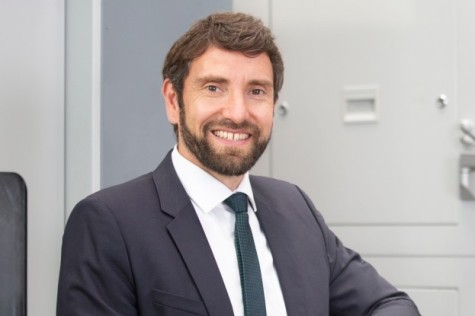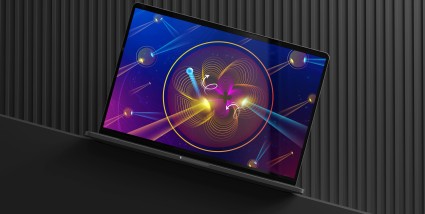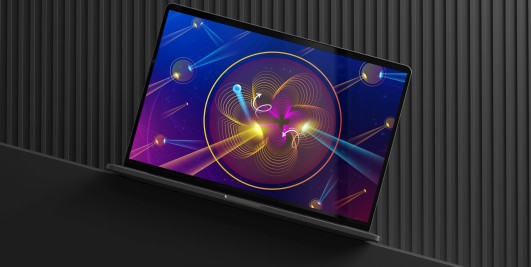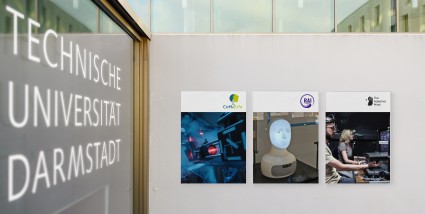Research Field M+M
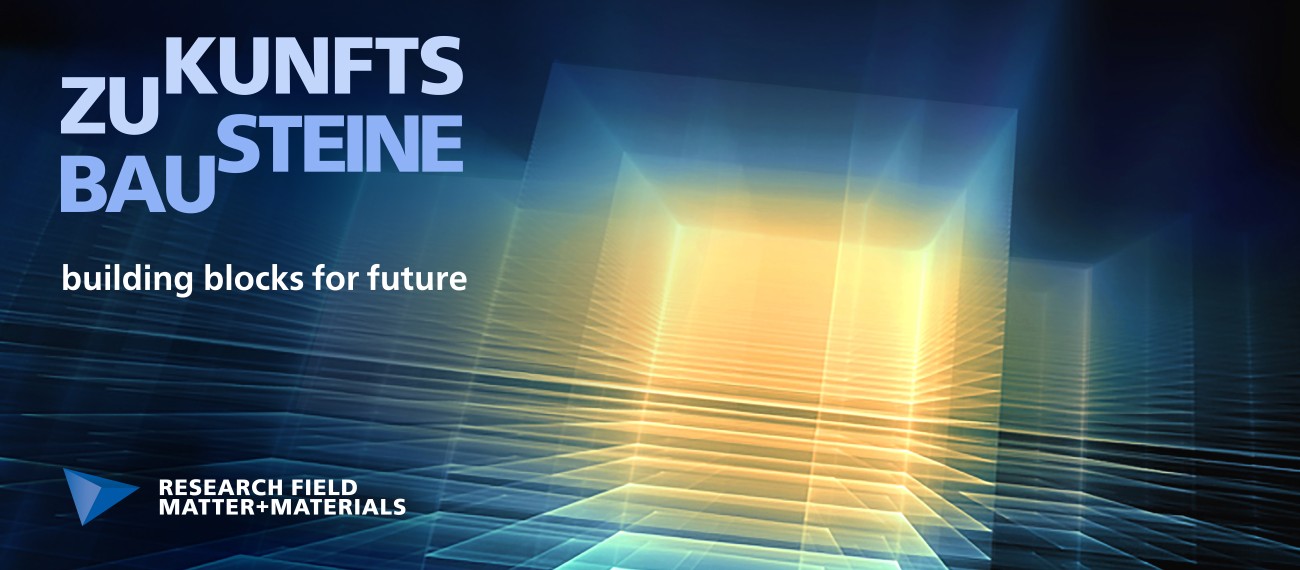
News
News
-
![Dr. Andreas Geißel (links) und Professor Dr. Jens Braun]() Picture: Patrick Bal
Picture: Patrick Bal![Dr. Andreas Geißel (links) und Professor Dr. Jens Braun]() Picture: Patrick Bal
Picture: Patrick BalFrom Quark Matter to Neutron Stars
December 17, 2025
New findings published in Physical Review Letters
Describing matter under extreme conditions, such as those found inside neutron stars, remains an unsolved problem. Researchers from TU Darmstadt and Goethe University Frankfurt have studied this matter and its thermodynamic properties. Their results have now been published in the renowned journal “Physical Review Letters”.
-
![]() Picture: Steffen Bisswanger
Picture: Steffen Bisswanger![]() Picture: Steffen Bisswanger
Picture: Steffen Bisswanger‘Hovering’ drops
December 17, 2025
Study by TU Darmstadt becomes cover story for ‘Soft Matter’ journal
Tiny drops of oil can resist a fluid flow and hover at a constant position. Researchers at TU Darmstadt have now documented and investigated this phenomenon for the first time. They made use of the so-called Ouzo effect.
-
![]() Picture: Pixelbuddha Studio -stock.adobe.com/TU Darmstadt
Picture: Pixelbuddha Studio -stock.adobe.com/TU Darmstadt![]() Picture: Pixelbuddha Studio -stock.adobe.com/TU Darmstadt
Picture: Pixelbuddha Studio -stock.adobe.com/TU DarmstadtProtonic Ceramics for the energy transition
December 16, 2025
SynDiPET research unit coordinated by TU Darmstadt approved
A new joint project led by TU researchers aims to expand climate-friendly hydrogen technology. The DFG is funding the project with more than €4.3 million.
-
![]()
![]()
3rd Symposium of the Research Field Matter and Materials
October 21, 2025
Focus on Profile Topic Synthetic Biology
Under the motto “Synthetic Biology goes …”, the Matter and Materials (M+M) Research Field at TU Darmstadt hosted its third symposium. The event, held on October 21, 2025, at the Georg-Christoph-Lichtenberg-Haus, focused on current research activities in the field of synthetic biology and its diverse application prospects – from collaborations within the Rhine-Main Universities (RMU) to robotics, nanosystems and nutrition.
-
![Labor am Fachgebiet Biophotonik]() Picture: TU Darmstadt/Fachgebiet Biophotonik
Picture: TU Darmstadt/Fachgebiet Biophotonik![Labor am Fachgebiet Biophotonik]() Picture: TU Darmstadt/Fachgebiet Biophotonik
Picture: TU Darmstadt/Fachgebiet BiophotonikCutting-edge technology for the paediatric cancer ward
July 29, 2025
MultiDrug-TDM: New LOEWE research cluster for medical technology
The new LOEWE research cluster ‘MultiDrug-TDM’, coordinated by TU Darmstadt, will receive 4.3 million euros state funding for four years, starting in January. The goal is to research a novel, intelligent sensor system to significantly improve paediatric cancer care. By measuring drug levels directly at the bedside, immediate adjustments and thus optimised personalized therapy will be possible.
-
![]()
![]()
TU Professor Weigold appointed to Industry 4.0 Research Advisory Board
May 22, 2025
TU professor Matthias Weigold has been appointed as a new member of the Industry 4.0 Research Advisory Board. The head of the Institute for Production Management, Technology, and Machine Tools (PTW) in the Department of Mechanical Engineering will now contribute his expertise to the board, as announced today (May 22) by the German Academy of Science and Engineering (acatech), which coordinates the advisory board.
-
![]() Picture: MPIK / PTB / Brookhaven National
Picture: MPIK / PTB / Brookhaven National![]() Picture: MPIK / PTB / Brookhaven National
Picture: MPIK / PTB / Brookhaven NationalNew insights into the structure of atomic nuclei
February 12, 2025
In the search for “dark forces”, physicists came across deformed nuclei
When world-leading teams join forces, new findings are bound to be made. This is what happened when quantum physicists from the Physikalisch-Technische Bundesanstalt (PTB) and the Max Planck Institute for Nuclear Physics (MPIK) in Heidelberg combined atomic and nuclear physics with unprecedented accuracy using two different methods of measurement. Together with new calculations of the structure of atomic nuclei, theoretical physicists from the Technical University of Darmstadt and Leibniz University Hannover were able to show that measurements on the electron shell of an atom can provide information about the deformation of the atomic nucleus. At the same time, the precision measurements have set new limits regarding the strength of a potential dark force between neutrons and electrons. The results have been published in the current issue of the scientific journal “Physical Review Letters”.
-
![]() Picture: Stacy Huang / Adobe Stock Deeplab
Picture: Stacy Huang / Adobe Stock Deeplab![]() Picture: Stacy Huang / Adobe Stock Deeplab
Picture: Stacy Huang / Adobe Stock DeeplabSnapshots at the atomic level: New imaging technology increases sensitivity
February 07, 2025
Using X-ray pulses in the attosecond range, scientists were able to increase the brightness and resolution of images of ultrafast processes in their natural environment.
-
![]() Picture: TU Darmstadt
Picture: TU Darmstadt![]() Picture: TU Darmstadt
Picture: TU Darmstadt“Fingers crossed for the excellence applications”
January 30, 2025
Cluster of Excellence applications are complete
Applications for the Excellence Clusters funding line under the Excellence Strategy of the Federal Government and the Länder are now closed. Hessian universities have submitted seven full applications, three of which are from TU Darmstadt. The decision will be made in May.












